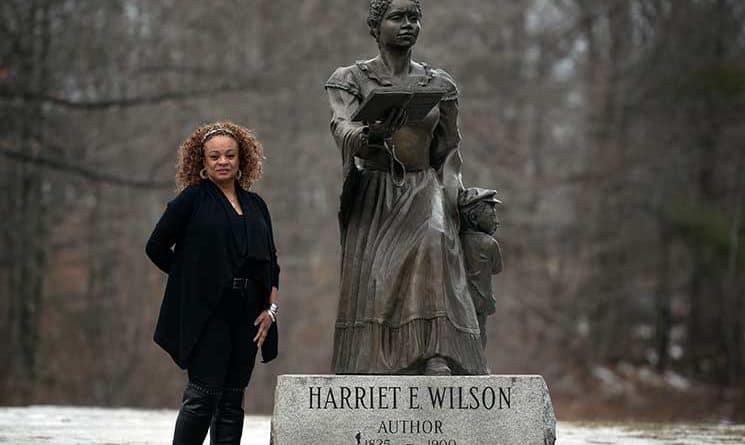Harriet E. Wilson’s 1859 novel, “Our Nig: Sketches from the Life of a Free Black,” is widely considered to be the first published novel by a black woman in the United States. Wilson’s roots, and the novel’s inspiration, lie in an unlikely source: Milford, the small New Hampshire town where Wilson grew up as an indentured servant for the Hayward family.
Boggis and others will highlight that history this month in the Seacoast with a series of lectures and discussions in celebration of Black History Month. The talks, part of PBHT’s Elinor Williams Hooker Tea Talk series, begin on Feb. 7 at 2 p.m. with author Michelle Arnosky Sherburne, who’ll discuss her book “Slavery and the Underground Railroad in New Hampshire” at the Discover Portsmouth Center in Portsmouth.
“We revised that tradition (of tea talks) with a focus on black history,” said Boggis. “The state itself has a long tradition of these dialogues, these lyceums from the 1800s, so I can’t say it’s a brand new idea.”
The talks look at both historical events and contemporary issues. For example, a March 13 talk focuses on the African-American members of Hampton’s First Church, while a Feb. 28 event includes a discussion of Spike Lee’s new film, “Chi-Raq,” with panelists Shay Stewart-Bouley, who writes the “Black Girl in Maine” blog, and Alexander Loughran-Lamothe, part of the Black Lives Matter movement.
“We are really lucky there have been black films out that we can feature. We let the dialogue come out to discuss the issues the films raise and deal with more contemporary issues still grounded in history,” said Boggis. “I don’t think we talk a lot about black history and race enough to really know what’s going on. Those films give us the opportunity to really look into contemporary issues as well.”
One of the events Boggis is most looking forward to is a Feb. 14 talk on the roles of black women in New England churches.
“Churches are very powerful in the black community and where there is no church, how does the black community work?” she said. “Churches were the foundation for the civil rights movement – are they still now?”
The talks are part of PBHT’s efforts to preserve and celebrate the history of the Seacoast’s, and the state’s, African-American community. Talking about slavery and racism can be uncomfortable and difficult, but Boggis said not doing so erases history and creates “skeletons in our closet.”
“I don’t think it only affects people of color in this area, I think it affects everyone in this area. I use an example of Harriet Wilson. Folks in the house where she used to live in Milford said, ‘Oh, we don’t talk about that history because it’s not something we are proud of.’ But, if you can’t talk about your own history you are doing yourself a disservice,” she said.
The tea talks and other programs are not meant to solve problems, according to Boggis, but instead create a safe space for intense dialogues. “If you shine a light on something, you can’t help but call for a solution,” she said.
The Portsmouth Black Heritage Trail’s 2016 Elinor Williams Hooker Tea Talks series run every Sunday from Feb. 7 through March 13 from 2 to 4 p.m. at the Discover Portsmouth Center, 10 Middle St., Portsmouth. Events are free and open to the public.

